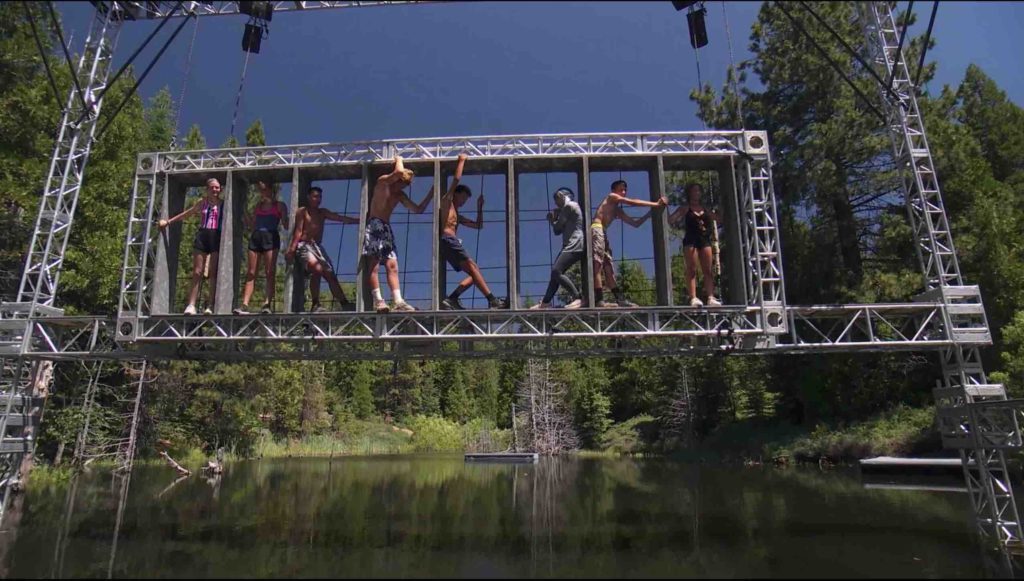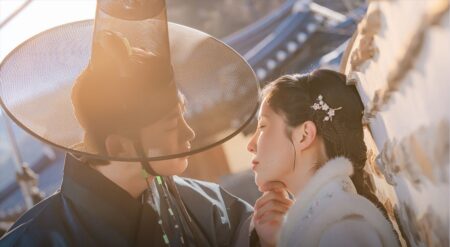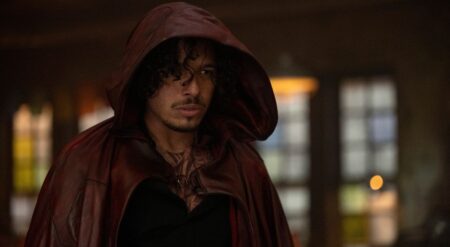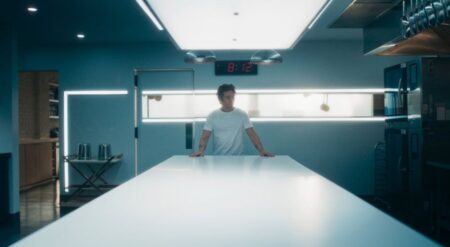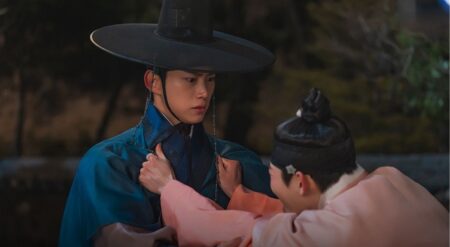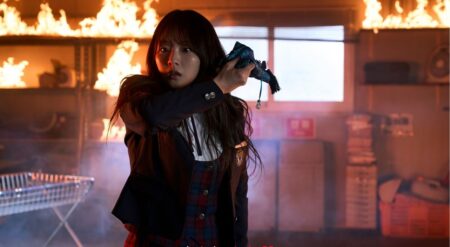Karma, a new reality competition show on HBO Max sees eight teams of teens compete in a Survivor-style battle of strength, wit, and karma. The show is hosted by YouTuber and lifelong fan of Executive Producer J.D. Roth’s previous kid’s competition show Endurance Michelle Khare. The show begins with 18 teens in the mountains of California, two of whom are eliminated immediately after the first challenge while the remainder are paired into teams of one boy and one girl by the next challenge’s winner.
I spent 12 summers of my life at the same overnight camp, five of them as a counselor and eventually, supervisor to younger counselors. I continue to work as a youth group advisor and oversee high school internship programs in my various places of employment. I take the mentorship and development of kids and teens through constructed by open environments like camps and like the environment on the set of Karma seriously because I know the immense value they have.
The main conceit of the show is the idea of karma, the Hindu and Buddhist belief that every deed committed in this life and previous lives will affect your place in the next life. In reality, the show adopts the more anglicized version of “what goes around comes around.” There are moments where this central premise really shines.
Each team is named for one of the twelve laws of karma and Michelle frequently gives advice to the kids based on the notion that the way they treat their fellow competitors throughout the show, good or bad, will come back into play eventually. At the same time, it frequently feels like it’s marred by cultural appropriation.
Michelle is Indian-American, but she never attests to practicing a religion with karma as one of its tenets. The unspoken implication that because she is Indian-American that there isn’t some level of cultural appropriation makes it feel worse.
In a healthy camp setting, Michelle would begin the first day by sitting all of the contestants down and not only giving a brief overview of what karma is, which she does. She would also explain what it means to her and allow the kids the opportunity to share what they’re thinking as they learn. Without this element of checking in, it makes karma feel like a prop rather than an actual religious belief.
Episodes of Karma are only a little longer than 35 minutes each. With three full weeks of likely non-stop filling by both professional camera crews and individual hand cameras each player has, there is no reason the show could not have been cut at least ten minutes longer, if not more. Spending more time hearing discussions between the kids and Michelle would go a long way to not only improving the viewing experience but also making the show more true to its own premise.
Maybe I’m just biased by my experience as a camp counselor and my tendency to watch reality shows and just hope that all of the contestants get along and are friends for life. But Karma also makes it clear through the occasions that Michelle does talk with the kids when things are getting rough socially that part of the point of the show is to teach a lesson about the impact you have on others.
It’s certainly not impossible for a group of teens to learn on their own the importance of treating everybody with love and respect, as it becomes clear by the show’s end that many of them do grow to care a lot for one another. But developing healthy relationships and deconstructing challenging experiences as a teenager is stronger when there are adults you trust who can help guide you through that.
Karma is very good at never being exploitative. Because the show features kids and not adults, there is a tendency towards hoping that they make the right moral choices and support one another rather than rooting for backstabbing and drama. the show should lean into this more. There are, of course, a lot of really intense emotions, kids with heartwrenching backgrounds, romances, friendships, loathing.
The show never shows anything that the participants wouldn’t want their parents seeing while their away from home without cell phones, many of them for the first times ever. Camp is, after all, the perfect place for expressing and exploring yourself precisely because there are no parents around. However, again, Karma would more powerfully drive home its message about putting good energy out into the world if it spent more letting the kids explore their emotions. I am sure this happens to a degree naturally, but having an adult who could help prompt the teens to think about and discuss their emotions would have put the show’s ethos into action.

A great feature on Michelle’s YouTube channel shows some of the attempts she had as the host to generate these conversations. But watching these behind the scenes videos, it feels like J.D. Roth was too busy trying to produce good television to remember that they’re working with kids.
A lot of the relationship-building between Michelle and the teens, which she mentions was important to do as a host and something she was really nervous about as she tried to prove herself as a capable host among the sea of influencers taking on similar roles of late. I hope that in a future season of Karma, Michelle not only feels more confident, which she deserves to as a great host for the show, but that the producers allow her to be lest stilted and more footage of that relationship and trust-building can be seen. Because without that foundation, the participants will certainly have a harder time learning the lessons about karma she tries to impart.
Plus, I just think it would be more fun to see what life is like in their little village. What do they eat? Where do they shower? What do they do at night for fun or on the days between challenges? The challenges in Karma are not revolutionary; they generally consist of some strength or speed-based team challenge to do something faster or more times than the other teams.
Karma doesn’t need to be broken down by gender the way it is.
And the overall mechanics of the show are simple but effective. There is one challenge per episode, the winner of which is immune for the round and is in the position to choose which two teams must face off in the Cave of Karma. All of the other teams are given coins which they must choose to give to one team or the other to increase their odds of making it back from the Cave and continuing on in the game. It would just go a long way to help connect with the players, both in terms of the stakes of the game and in the lessons they are learning, if we spent more time watching them just being kids.
I don’t love the fact that the game is so gendered this way. There are a lot of unhealthy gender dynamics that play out in the early episodes, especially as boys make all the decisions and often portray the girls as overly emotional. But also, they’re teenagers, so in the absence of concerted effort on Michelle’s or the producers’ parts to mitigate and discuss sexism, it may have been even worse if the teams weren’t broken down this way.
There was also definitely some subtle racism apparent in some of the early episodes involving the only Black boy in the competition. The issues resolved amicably, and perhaps nobody on set thought anything of it from the racial perspective, but this was one of the moments where I most badly wished that Michelle was able to play a stronger role in counseling the teens.
I’m sure people talked to them behind the scenes. It would feel like negligence if nobody checked in to see how they were all doing whenever tensions got high. But having it more directly and from somebody, they had bonded with would go a long way.
Of course, Karma‘s final episode ends like any good reality competition show should and makes very clear that most of the participants became great friends, warming my heart and making me glad that despite the lack of counselorship apparent in the show, they all grew tremendously since first arriving at camp. Despite its shortcomings, I clearly felt a deep attachment to the show and its contestants, thanks to the deeply emotional and transformative experience they went through.
Karma doesn’t get everything right, but it’s also a reality show. Michelle had to learn much of what she was doing on the fly and its clear that she grew better and better at fulfilling her role and working with the teens as the show went on. I hope that future seasons of Karma can feature longer episodes that allow viewers to build deeper bonds with the participants.
I also hope they allow Michelle more freedom to be her real self and not just a distant and uninvolved host. The kids all did great on their own, but they would do even better if they had a camp counselor to help guide them.
Karma is streaming now on Netflix.
Karma
-
Rating - 8/108/10
TL;DR
Karma doesn’t get everything right, but it’s also a reality show. Host Michelle Khare had to learn much of what she was doing on the fly, and its clear that she grew better and better at fulfilling her role and working with the teens as the show went on.

